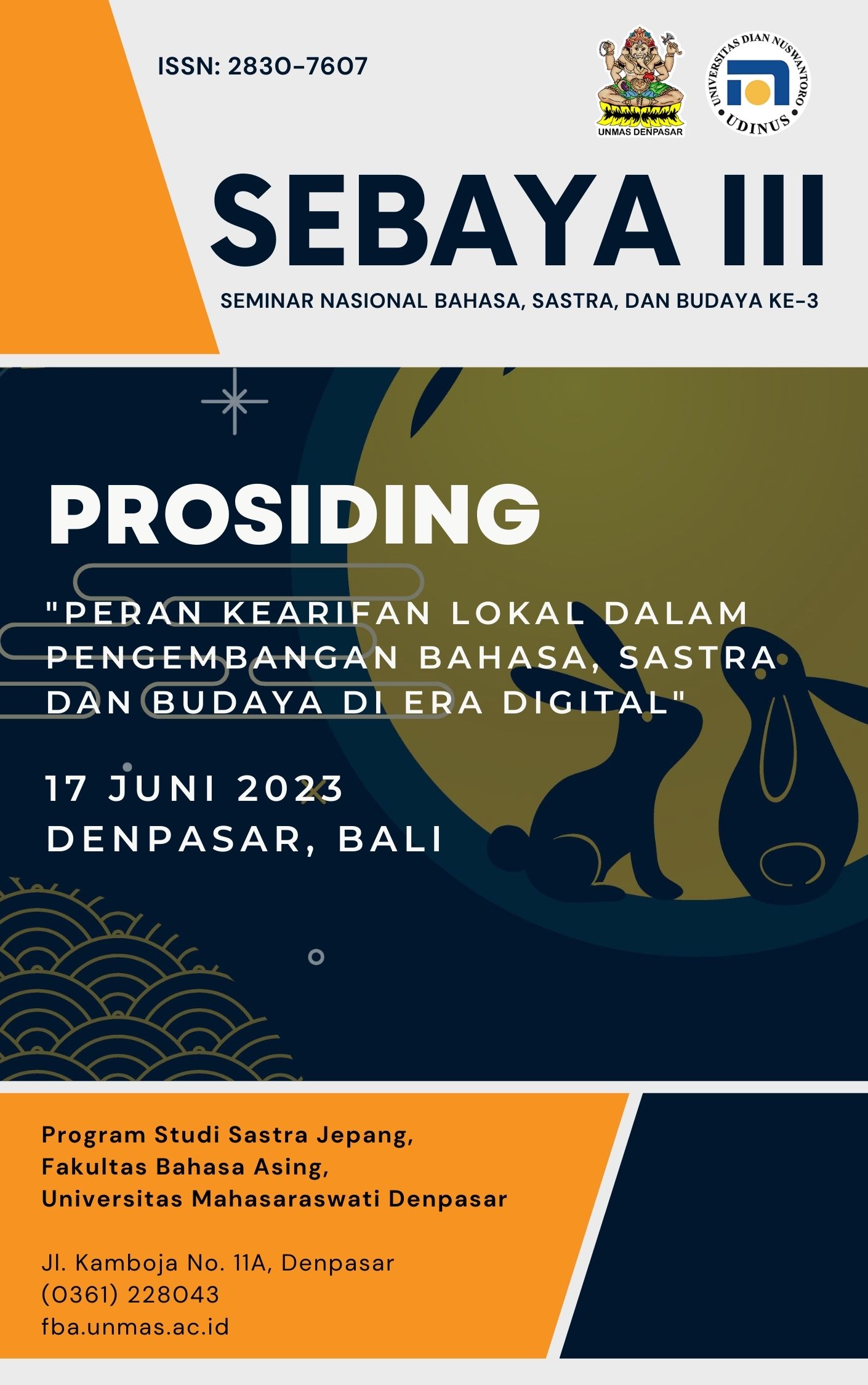TRANSFORMASI SASTRA PADA NOVEL BUMI MANUSIA KARYA PRAMOEDYA ANANTA TOER SEBAGAI HASIL DARI DEKOLONISASI SASTRA
Keywords:
literary transformation, literary decolonization, human earthAbstract
This study aims to analyze the literary transformation of Pramoedya Ananta Toer's novel Bumi Manusia which includes the influence of literary decolonization on the themes, plots, characters, and language used in the novel. This study uses a qualitative approach and descriptive analytical method. The data collection techniques used in this study were: (a) Observation, namely by observing the activities of learning literature in class and analyzing the interactions between teachers and students; (b) Interviews with Indonesian language teachers and students who are involved in learning literature in class; (c) Documentation by collecting and analyzing documents related to learning literature in class, such as lesson plans, teaching materials, and student attendance records. The results of the research show that the occurrence of literary decolonization in Indonesia has brought about changes. (1) Prior to decolonization, the themes in Indonesian literature tended to be colonial life, in which the Indonesian people were depicted as objects or victims of colonialism. After decolonization, themes in Indonesian literature focused on the Indonesian struggle for independence and the aspiration to become an independent and great nation. (2) Plots in Indonesian literature also underwent changes, with a focus on the struggle for independence and broader socio-politics. (3) The characters in Indonesian literature also underwent changes after decolonization. Characters in Indonesian literature previously tended to be depicted in colonial stereotypes that framed the Indonesian people as subordinates or colonial subjects. After decolonization, characters in Indonesian literature began to be described as individuals who had complexities and uniqueness. (4) The language used mostly uses regional languages and Indonesian as the official language. Based on the research results, it can be interpreted that the decolonization of literature in Indonesia has brought about significant changes in Indonesian literature, with the hope of providing a better understanding of the transformation of literature in the post-decolonization period in Indonesia. is expected to contribute to scientific development in the field of literature

